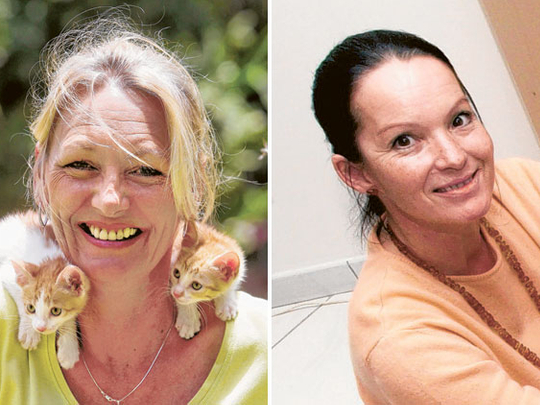
DUBAI: Animal groups have lashed out against the move to impose fines on people feeding stray cats in Dubai, even as reports state their population could be reaching "frightening" proportions.
"This is ridiculous. If an animal is hungry, we are obliged to feed it with food and water," said Petra Mueller, President of MECATS Society.
"How is it okay to look the other way when an animal is starving? People should be fined for not neutering cats, not for feeding them," said Lesley Muncey, Chair of Feline Friends Dubai.
"This is not acceptable. We are all creatures of God and must take care of each other, not allow other creatures to die slowly by starving them. Rather than preventing people from feeding cats, it is better to concentrate on TNR or trap-neuter-return — the only proven solution to the stray cat problem," said Raghad Auttabashi of the Al Rahma Animal Welfare and Rescue Society. The groups were responding to the Dubai Municipality's recent warning that residents would be fined a sum of Dh200 if they are found feeding stray animals.
Reacting to the rationale that this would check the risk of catching a disease, Muncey said, "If the fear is that a sick cat can spread disease — which I don't agree with — a cat that is starved can be more susceptible to diseases as its immunity would be low. It is rare that people contract diseases while feeding stray cats because they just feed them and go away. They don't quite come into contact with them." Auttabashi said: "The notion that stray cats can spread diseases is wrong. Modern studies have established that. In fact, these animals have been created to stay around humans for a purpose and we must respect that."
With thousands of cats estimated to live in colonies and off trash bins across the city, the experts said the best way to deal with them is through the TNR method. In a US study over an 11-year period, it was found that cats lived an average of seven years after being neutered and brought back to their territory.
Call for public help
Muncey said the fantastic ability of cats to breed is such that if you started with one female cat, she could lead to a 25,000 offspring within five years, taking into account her kittens giving birth. Also, a cat that's not looked after and is without human contact will turn feral after some time.
She said people should be encouraged to get in touch with Dubai Municipality or animal groups when they see stray cats so that they can be duly trapped, neutered and returned to the same environment. "You're never going to get them all. If the public can help us, then eventually there will be a healthy population of stray cats," she said, adding that Feline Friends neutered more than 1,000 cats last year.
Mueller said official shelters in Abu Dhabi and Sharjah are now taking in cats and caring for them. "It is important to keep cats alive and healthy because they can kill rodents and rats and maintain nature's balance. If they are well looked after, we wouldn't have the need for rat committees."
Muncey said people lacked awareness about the feeding habits of cats which must be given dry foods and water, not wet foods that get spoilt.
"The biggest problem in a city like Dubai is that it has a large transient population. Some people keep a pet, then throw it on the street when they get bored. But if you want a pet, you must be prepared to take responsibility. And remember cats can live on average of 15 to 20 years," said Muncey.
"Dubai is not just for people, but also cats and dogs and birds and that's what makes it so beautiful," Auttabashi added.
Get a Cat Neutered
By contacting the Municipality or relevant animal groups, you can do your bit to get a cat neutered. It takes about 20 to 30 minutes to neuter a male cat and about 25 to 30 minutes to sterilise a female.
Dubai Municipality responds: The Department of Public Health Services at Dubai Municipality has categorically stated that the newly-issued imposition of fines for feeding stray cats is based on the civic body’s keenness on public health and safety and in no way denies people's right to love animals.
Hashim Awadhi, Head of the Veterinary Services Section at the Municipality said, in a press statement: “We are aware of what our religion teaches on how to be merciful towards animals in our life. But what we forget often is the threat these animals pose toward the health safety of the citizens of the society."
"Many of these animals, especially the non-registered and non-vaccinated ones, transmit diseases to human beings and create lethal damages especially to the health of those who lack a good immune system like elderly and children,” he said.
"Animal transmitted diseases include Rabies and Toxoplasmosis, a parasitic disease affecting those who frequently deal with infected cats,” said Hashim.
He said that Toxoplasmosis may lead to abortions and deformation to the human organs. A cat bite or scratch may cause painful burning and swelling in the body.











